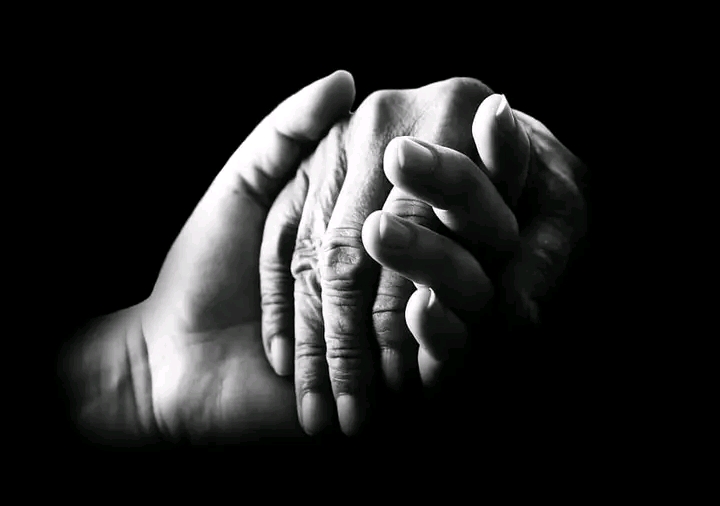
By Mahmud Isa Yola
I recently encountered an erstwhile acquaintance of mine at the airport, with whom I shared the disquietude of an unannounced flight delay on our way back to Abuja. He was quick to narrate to me how his brother, who I used to know, just got out of a treatment centre after enduring five years of drug addiction. While explaining to me how his brother fell into drug abuse and how he abandoned school, my friend partially mentioned that the family ostracised him when they first learnt about his drug issue. Having been disowned by his own family, my friend’s brother was cast into the welcoming arms of drug users, among whom he spent two years before his family searched for him and took him to a treatment centre.
The result of the “rejection” committed against my friend’s brother was a needless prolongation of his drug predicament, which persisted for five years. Needless to say, had the family actively opted for treatment, he could have been treated within months, depending on his condition, and he wouldn’t have squandered two years fraternising with drug users while descending into drug misuse himself.
This story is a vivid illustration of the deleterious effects of stigma and the urgent need for greater empathy and understanding towards individuals grappling with addiction. Rather than facilitating individuals on the road to recovery, stigmatisation and discrimination only serve to alienate them further from seeking help.
Empathy is a multifaceted concept that encompasses both cognitive and affective components. The cognitive component involves the ability to comprehend and accurately perceive another’s emotions and experiences, while the affective component involves sharing in those emotions and experiences on an emotional level.
In the context of drug addiction, empathy is particularly crucial, as individuals grappling with addiction often face significant emotional turmoil, ranging from feelings of shame and self-blame to depression and anxiety. Empathy can help create a sense of safety and understanding, enabling individuals to feel heard and seen and decreasing the likelihood of self-harm or relapse.
Exercising empathy towards drug users can go a long way in promoting their recovery and well-being. But how exactly can we exercise empathy in a way that genuinely benefits them?
Firstly, it is important to eschew judgement and stigmatisation. Drug addiction is a complex and multifaceted disease, influenced by a range of factors, including genetics, environment, and psychology. By recognising the complexity of addiction and avoiding oversimplification or judgement, we can create a space that is safe and supportive for individuals to seek help and make progress towards recovery.
Secondly, it is crucial to listen and comprehend the individual’s perspective. By actively listening to their experiences, we can gain insight into the root causes of addiction and identify potential triggers or challenges. This can help in developing personalised treatment plans that address the individual’s specific needs and challenges.
Thirdly, it is essential to provide support and encouragement throughout the recovery process. Addiction can be a long and arduous journey, with many ups and downs along the way. By providing consistent support and encouragement, we can help individuals stay motivated and focused on their goals, reducing the likelihood of relapse and promoting long-term recovery.
It is also crucial to recognise that recovery is not a linear process and setbacks are a normal part of the journey. By exercising empathy and understanding, we can help individuals navigate these setbacks with compassion and support, encouraging them to continue on their journey towards health and well-being.
Failing to exhibit empathy towards drug users can have serious consequences for both the individual and the broader community. One of the main consequences of lacking empathy is the perpetuation of stigma and discrimination, as envisaged in the case of my friend’s brother. When drug users are stigmatised, they are more likely to feel ashamed and isolated, which makes it difficult for them to seek help and support. This can create a vicious cycle of addiction where individuals are unable to access the resources they need to overcome their addiction, leading to continued drug use and potentially harmful behaviours.
Furthermore, it could have broader social consequences. For example, it can lead to negative public attitudes towards drug users, which can result in the criminalization of drug addiction and an overreliance on punitive measures. This can further exacerbate the harm caused by addiction, making it more difficult for individuals to access treatment and support and leading to increased rates of incarceration, violence, and other harmful outcomes.
It is in this regard that the National Drug Law Enforcement Agency created a toll-free line (0800-1020-3040) that provides immediate support in terms of treatment, counselling, and care for persons with drug use disorder. The toll-free line also offers counselling to acquaintances of drug users on how to best relate to them in a way that would not hamper their recovery or signal stigmatisation.
There is a lot we could do to understand those who use drugs close to us. It might start with merely the language we use, the way and attitude with which we communicate with them, and making sure that there is less indifference and more respect for the user. Additionally, rather than from a moral position, we should consider drug usage from a humanistic standpoint. By these and other means, we could preserve empathy and support the healing of people with drug use problems around us.


